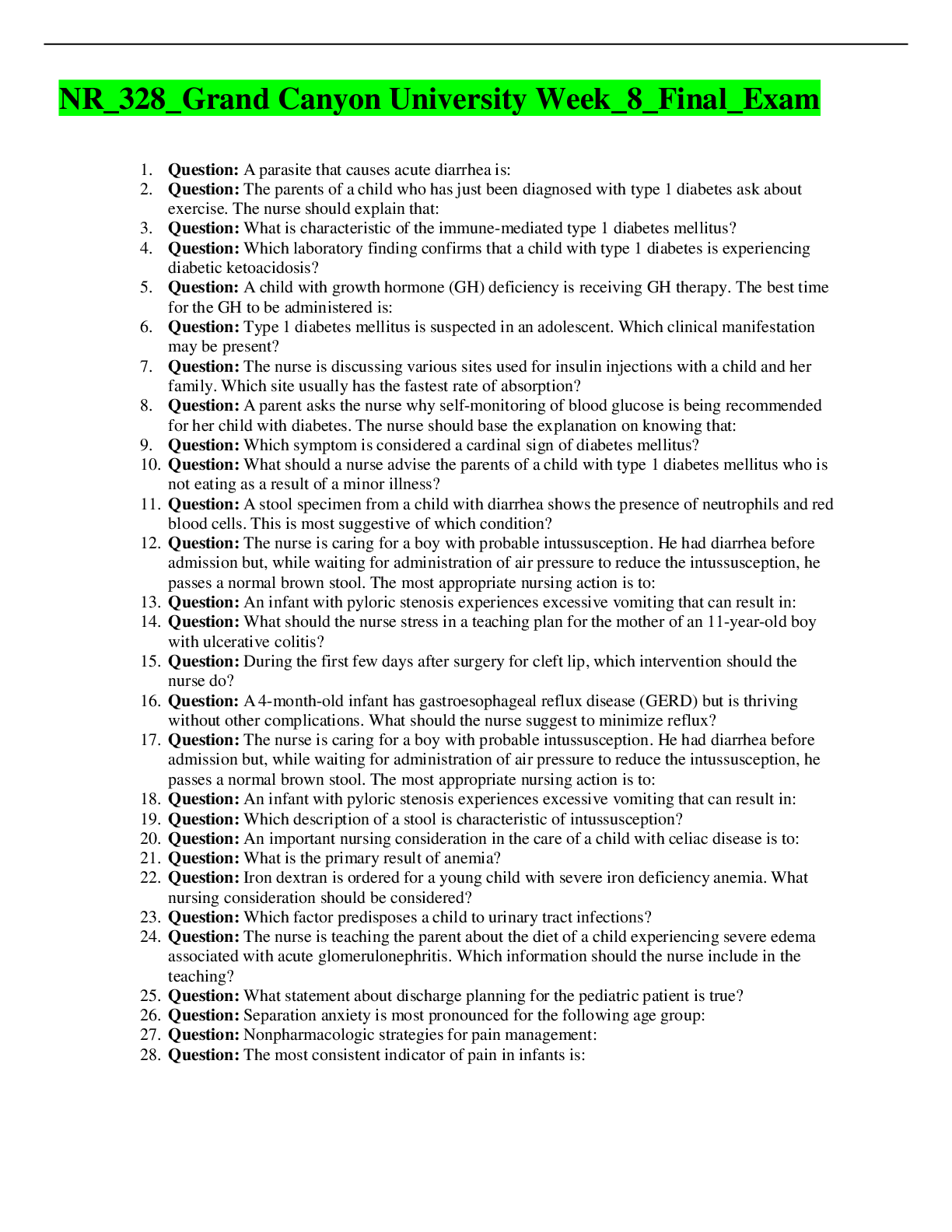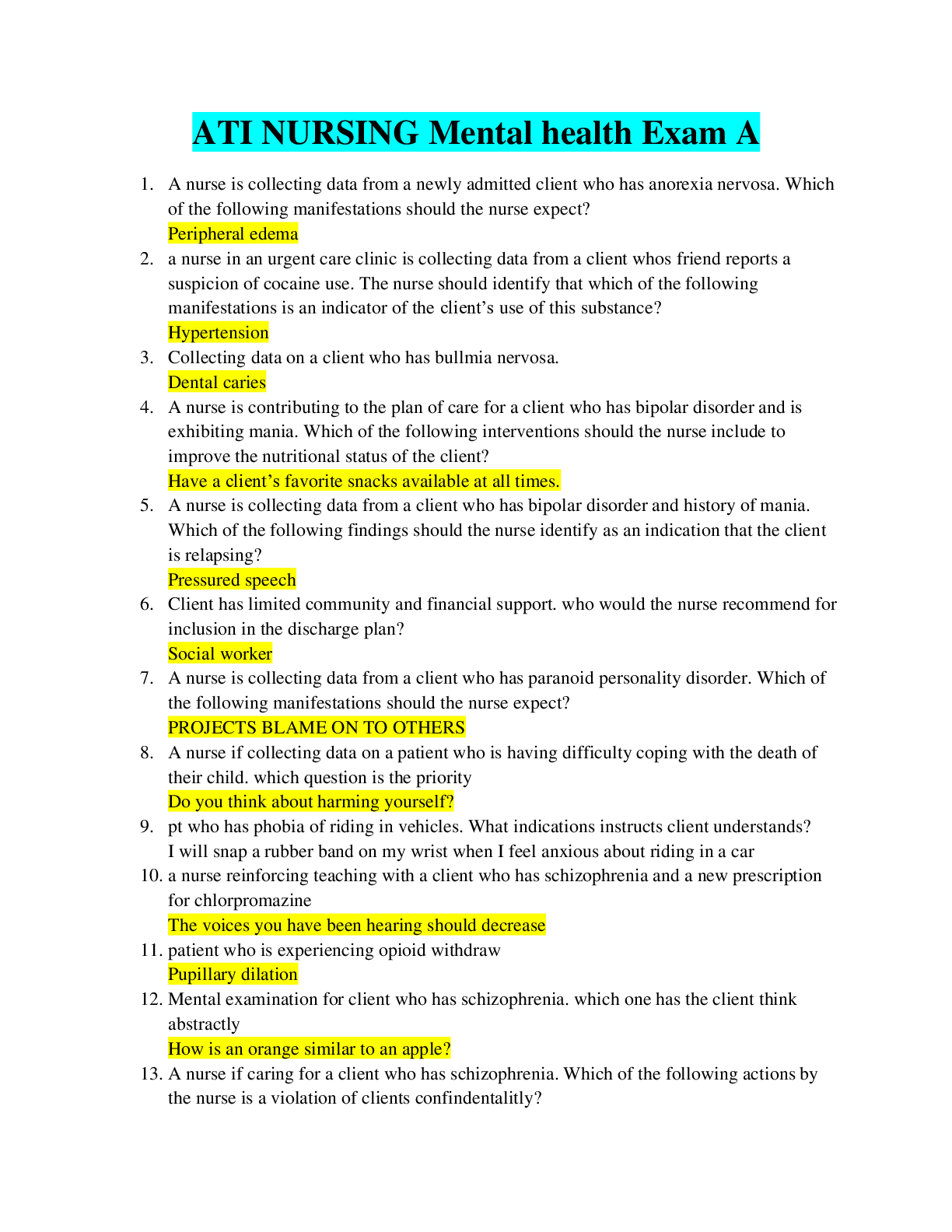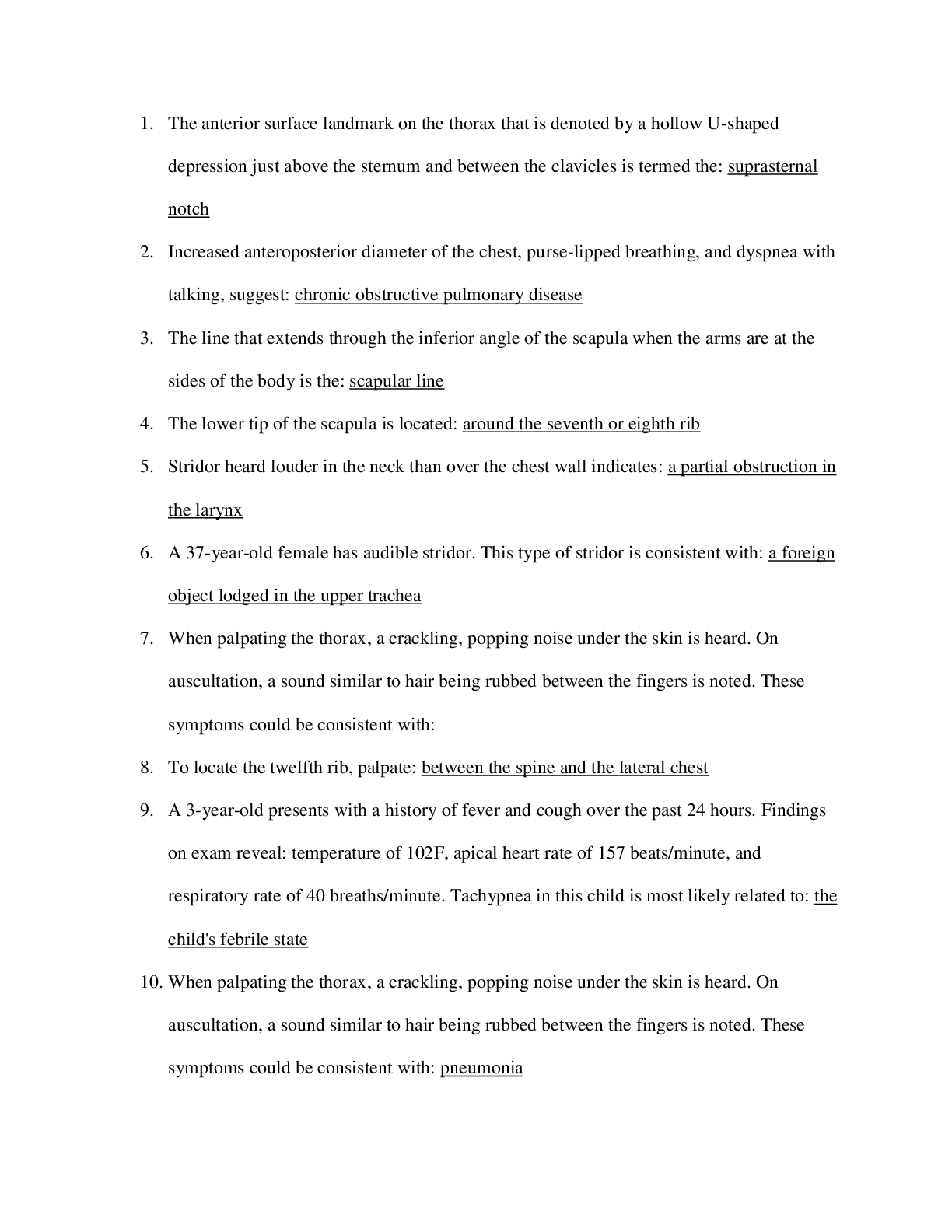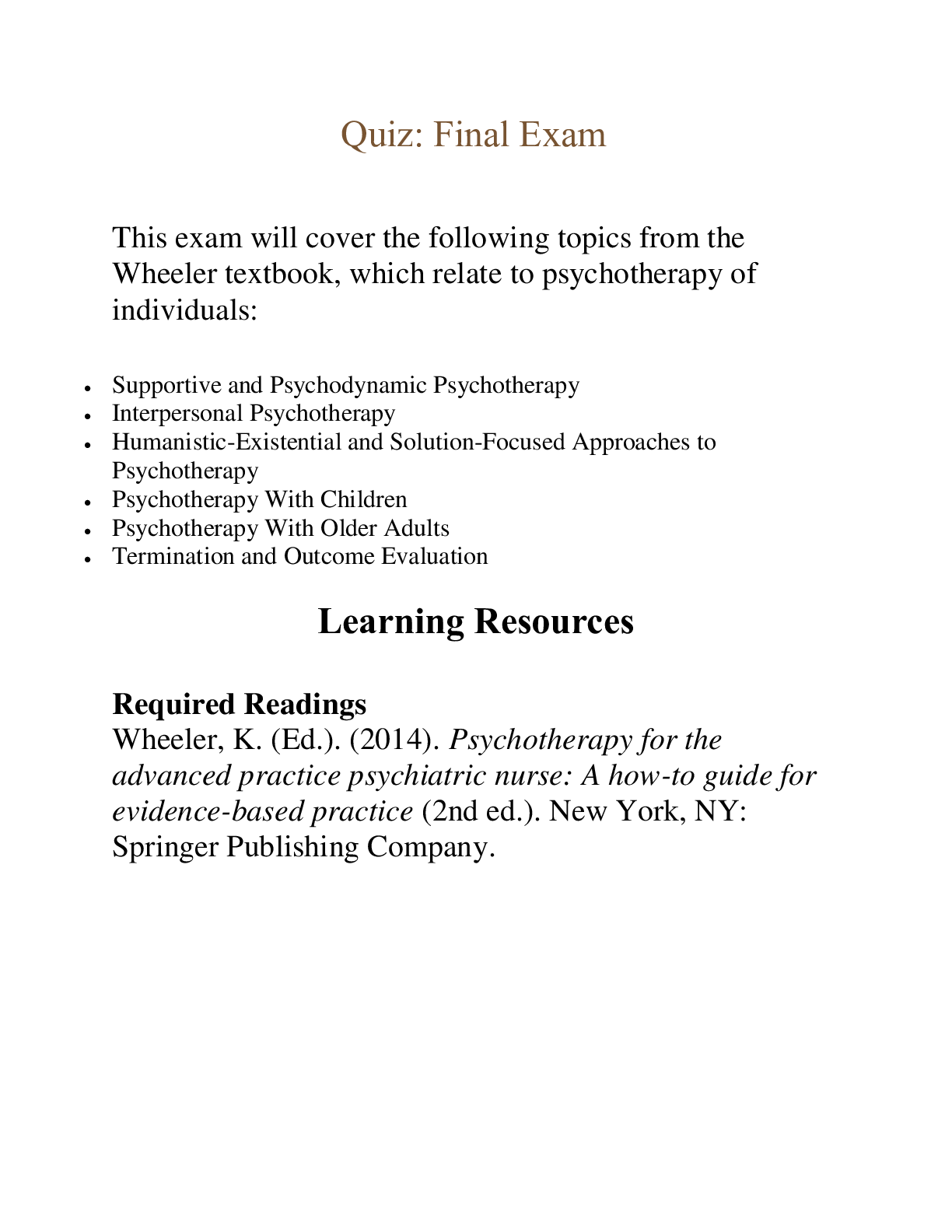*NURSING > QUESTIONS & ANSWERS > HESI COMPREHENSIVE EXAM REVIEW (A Grade), Questions and Answers, All Correct Study Guide, Download t (All)
HESI COMPREHENSIVE EXAM REVIEW (A Grade), Questions and Answers, All Correct Study Guide, Download to Score A
Document Content and Description Below
HESI COMPREHENSIVE EXAM REVIEW (A Grade), Questions and Answers, All Correct Study Guide, Download to Score A 1. A client with hepatic failure tells the nurse about recent use of acetaminophen. How s... hould the nurse respond to this client's statement? A. Bleeding precautions should be implemented. B. Tylenol is indicated for minor aches and pains. C. Acetaminophen reduces inflammation. D. The drug is hepatotoxic and contraindicated. 2. Which physiologic finding in an older adult contributes to an adverse drug reaction? A. Reduced renal excretion B. Reduced gastrointestinal motility C. Increased hepatic metabolism D. Increased risk of autoimmune disorders 3. The nurse is providing care to a client with head trauma with the most recent intracranial pressure reading of 22 mm Hg. The health care provider has prescribed morphine for pain control. Which pathophysiologic response supports the contraindication for opioids, such as morphine, in clients with increased intracranial pressure (ICP)? A. Sedation produced by opioids is a result of a prolonged half-life when the ICP is elevated. B. Higher doses of opioids are required when cerebral blood flow is reduced by an elevated ICP. C. Dysphoria from opioids contributes to altered levels of consciousness with an elevated ICP. D. Opioids suppress respirations, which increases PCO2and contributes to an elevated ICP. 4. A client who is admitted with emphysema is having difficulty breathing. In which position should the nurse place the client? A. High Fowler position without a pillow behind the head B. Semi-Fowler position with a single pillow behind the head C. Right side-lying position with the head of the bed elevated 45 degrees D. Sitting upright and forward with both arms supported on an over the bed table 5. An older client who resides in a long-term care facility is hearing-impaired. How should the nurse modify interventions for this client? A. Turn off the client's television and speak very loudly. B. Communicate in writing whenever it is possible. C. Speak very slowly while exaggerating each word. D. Face the client and speak in a normal tone of voice. 6. A client with hemiplegia who is on bed rest is turned to the supine position, and the nurse determines that the client's hips are externally rotated. Which intervention is most important for the nurse to implement? A. Request a prescription for a bed board to provide increased back support. B. Reposition the client so that both feet are supported by the bed board. C. Move the trapeze bar to allow the client to pull with the upper extremities. D. Place trochanter rolls on the lateral aspects of the client's thighs. 7. A client hospitalized for meningitis is demonstrating nuchal rigidity. Which symptom is this client likely to be exhibiting? A. Hyperexcitability of reflexes B. Hyperextension of the head and back C. Inability to flex the chin to the chest D. Lateral facial paralysis 8. A child is having a generalized tonic-clonic seizure. Which action should the nurse take? A. Move objects out of the child's immediate area. B. Quickly slip soft restraints on the child's wrists. C. Insert a padded tongue blade between the teeth. D. Place in the recovery position before going for help. 9. A client with rhabdomyolysis tells the nurse about falling while going to the bathroom and lying on the floor for 24 hours before being found. Which current client finding is indicative of renal complications? A. 3+ protein in the urine B. Blood urea nitrogen > 25 mg/dL C. Blood pH > 7.45 D. Urine output, 2500 mL/day 10. A client with acute renal failure (ARF) starts to void 4 L/day 2 weeks after treatment is initiated. Which complication is important for the nurse to monitor the client for at this time? A. Diabetes insipidus B. Hypotension C. Hyperkalemia D. Uremia [Show More]
Last updated: 2 years ago
Preview 1 out of 91 pages
, Questions and Answers, All Correct Study Guide, Download to Score A.png)
Buy this document to get the full access instantly
Instant Download Access after purchase
Buy NowInstant download
We Accept:

Reviews( 0 )
$18.00
Can't find what you want? Try our AI powered Search
Document information
Connected school, study & course
About the document
Uploaded On
May 08, 2021
Number of pages
91
Written in
Additional information
This document has been written for:
Uploaded
May 08, 2021
Downloads
0
Views
37


 Questions and Answers (latest Update), All Correct, Download to Score A.png)






, (A Grade), Questions and Answers, All Correct Study Guide, Download to Score A.png)
, Questions and Answers, All Correct Study Guide, Download to Score A.png)
, Latest Questions and Answers with Explanations, All Correct Study Guide, Download to Score A.png)



.png)


 Questions and Answers (latest Update), 100% Correct, Download to Score A.png)
, 100% Correct, Download to Score A.png)
, 100% Correct, Download to Score A.png)
, 100% Correct, Download to Score A.png)
 Questions and Answers (latest Update), 100% Correct, Download to Score A.png)

